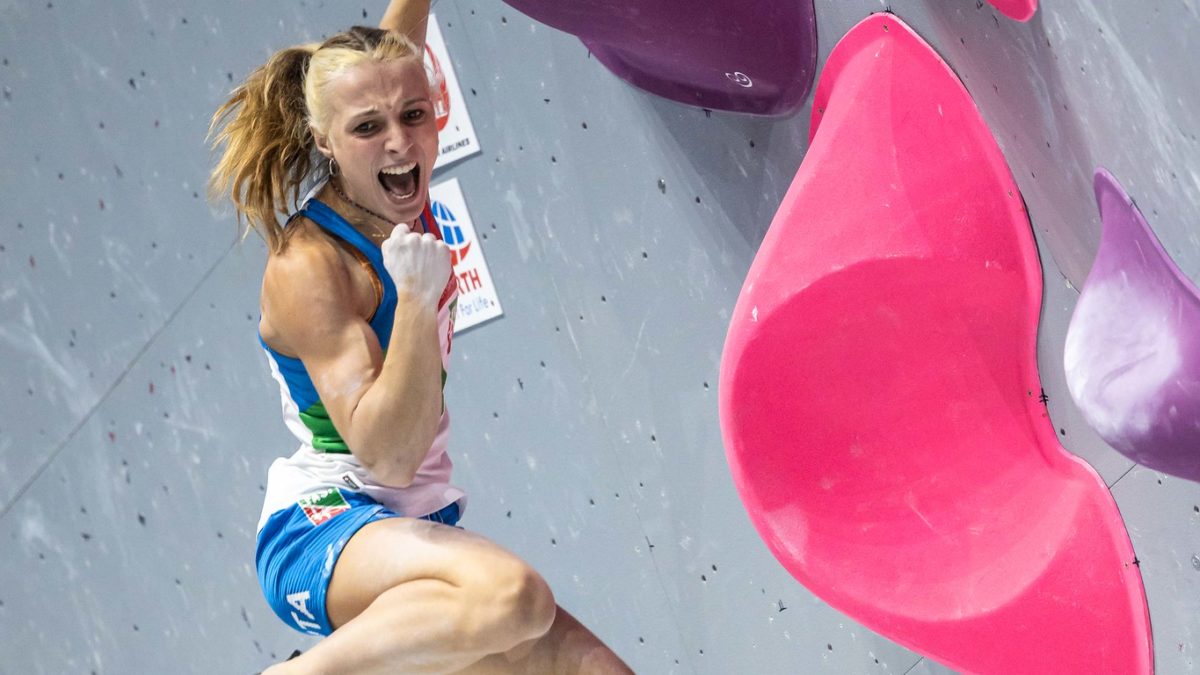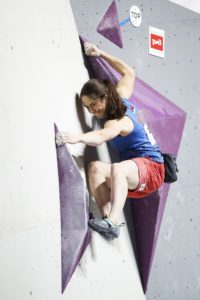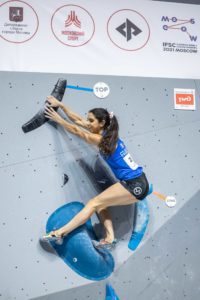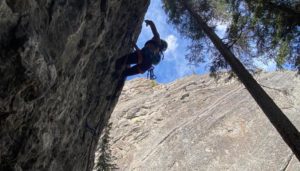Moscow Semi-Final and the Objectification of Athletes
A strong Women's semi-final at the Boulder World Championships became overshadowed by inappropriate camera work

This morning saw the conclusion of the Women’s Boulder semi-final at the 2021 IFSC World Championships. The Moscow-based competition drew attention over these last few days as the largest event since the Olympic Games. Although Canadians had to wake early to watch the semi-final, many found themselves startled by the inappropriate videography of the event.

The images reflected the Innsbruck World Cup held in June. The event was spectacular enough to become the thumbnail for the Women’s Boulder final livestream. This could be inappropriate.
The semi-final at Innsbruck saw Austria’s Johanna Färber filmed inappropriately. While the climbing community did react on social media, this would not be enough to prevent such an act from occurring a second time. Once again, a videographer hired for the broadcasting of the World Championships decided to present Färber discourteously in front of a live audience.
Upon the first incident, a statement was released. “We acknowledge that, for a brief moment, we chose to display the sport of climbing in the wrong way,” said ORF director Michael Kogler. “Our apology goes out to Ms. Johanna Färber, the International Federation of Sport Climbing, Austria Climbing, and all those who felt concern and discomfort for our actions.”
Despite his need to qualify the injustice with the statement, “for a brief moment,” many took this apology as the conclusion of such incidents and yet it happened again early this morning. Not only did it happen again, it happened to the same athlete.
This time, the IFSC released another statement. “The IFSC would like to deeply apologise to Johanna Färber, Austria Climbing, all the athletes, and the entire sport climbing community for the images that were broadcast today during the women’s boulder semi-final at the IFSC Climbing World Championships Moscow 2021.
“The IFSC condemns the objectification of the human body and will take further action in order for it to stop, and to protect the athletes.
“After meeting with representatives of the Austrian team, IFSC President Marco Scolaris issued the following comment: ‘How many times will things have to be done wrong, before we learn how to do them right?’”
Although the sentiment from Scolaris directs itself toward a solution, the lack of detail leaves questions unanswered. Why this did happen again and how the IFSC plans to prevent such future injustices remains unclear.
Upon the original incident in Innsbruck, Färber made a brief statement. She described the instance as “disrespectful and upsetting.” Färber has yet to publicly comment on the most recent occurrence of this event, but she should not need to make a statement for action to occur.
Once more, such an event serves as a reminder to recognize that objectification occurs in climbing. How might climbing include new demographics into the sport when it struggles to respect those already participating?
The semi-final livestream was taken down and the commentators condemned the inappropriate camerawork during the live stream. Since then, the IFSC took down the original livestream, removed the indiscretion, and republished the livestream on their YouTube channel.
The Semi-Final
The competition ran for two hours and provided numerous instances of performance. Although some of climbing’s favourite competitors did not appear in this Boulder Semi-Final, the strong field saw a rising star in the morning’s competition.
Italy’s Camilla Moroni climbed an excellent semi-final, topping all four boulder problems. Although Team USA’s Natalia Grossman would complete each of the four problems in fewer attempts than Moroni, this result spoke volumes of the Italian who out competed several elite competitors.
Serbia’s Stasa Gejo and America’s Brooke Raboutou each battled their way through the challenging Semi-Final earning sixth and fifth respectively. France’s Fanny Gibert had a strong competition as well, climbing two of the four boulders after losing an appeal on W1.
The slab intensive problem had the French climber moving well through to the match, but before a complete control of the finish, Gibert fell, missing out on sixth position by three attempts. This appeared to be a fair call given Canadian Sean McColl’s result in Salt Lake City in which he matched a finish hold without complete control. In the end he would have to resend for full points, but in this competition Gibert had run out of time on W1.

Gibert has climbed a strong season so far but keeps narrowly missing finals. Still, the power she brought to the field today showed the French athlete could be on the verge of finals in upcoming competition. With that said, Slovenia’s Janja Garnbret decided against competing in Moscow following an exhausting season.
To that effect, Japan’s Miho Nonaka also decided against competing, potentially skewing the results for those trying to make projections based on those who made it to Finals. However, some extremely strong climbers did not make Finals in Moscow. Neither Lucka Rakovec nor Vita Lukan of Slovenia cracked the top six despite their abilities.
Instead, a surprise showing of Switzerland’s Andrea Kumin and Russia’s Elena Krasovskaia both climbed well earning fourth and third heading into Finals.
Women in Finals
1 – Natalia Grossman (USA)
2 – Camilla Moroni (ITA)
3 – Elena Krasovskaia (CFR)
4 – Andrea Kümin (SUI)
5 – Brooke Raboutou (USA)
6 – Stasa Gejo (SRB)
Featured image of Camilla Moroni by Dimitris Tosidis.


